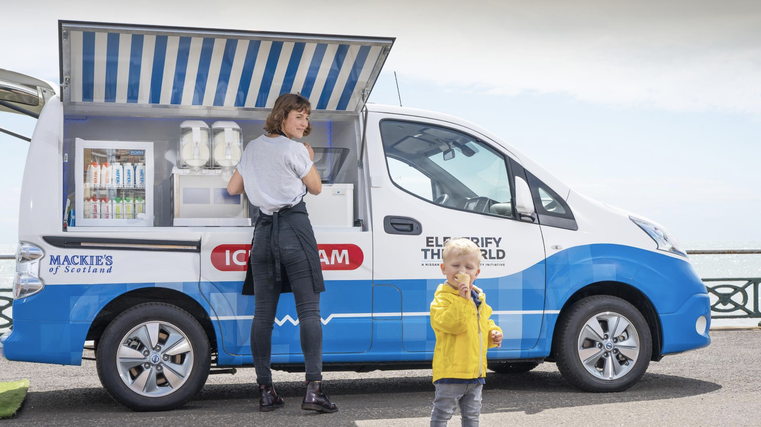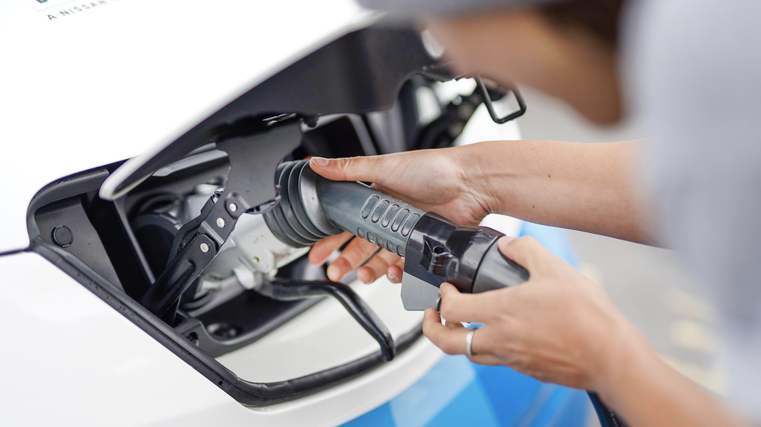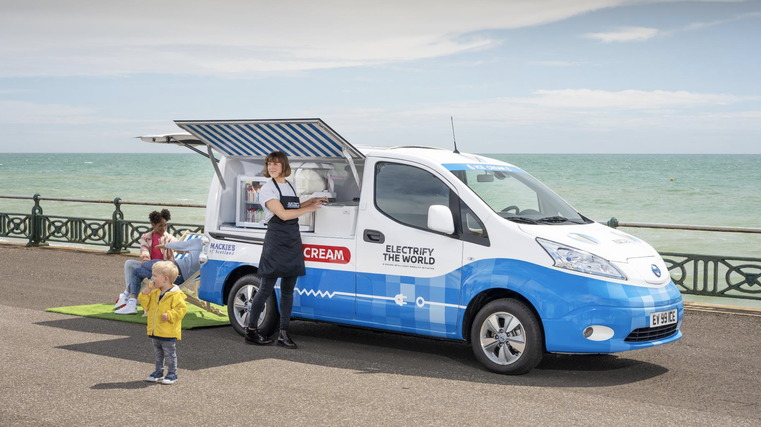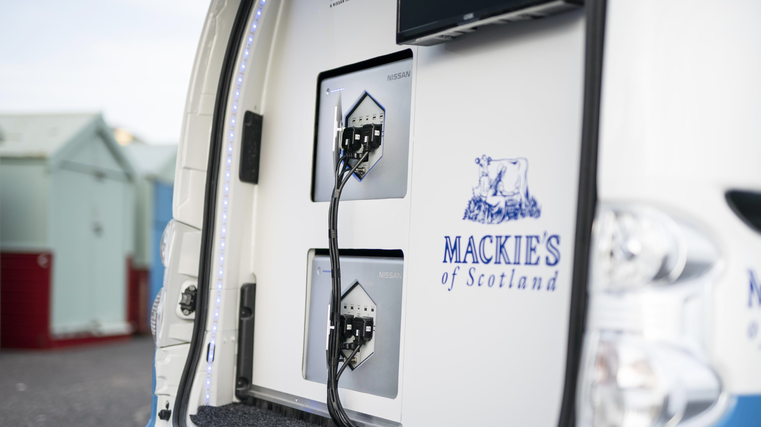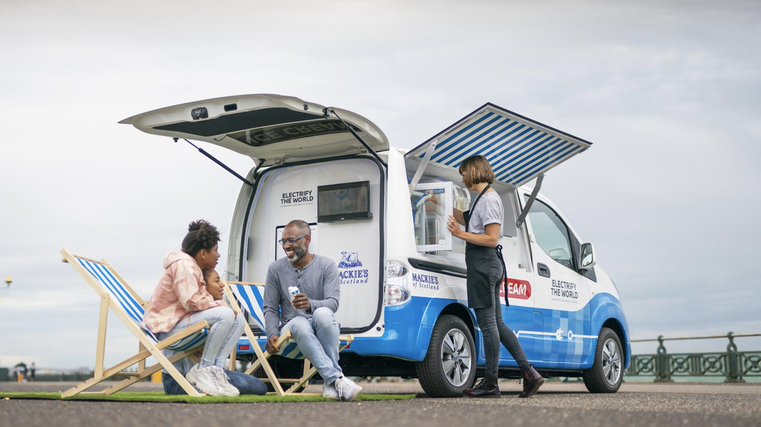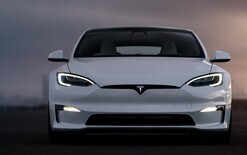Nissan unveils all-electric ice cream van
Nissan has taken the ICE (internal combustion engine) out of the ice cream van, creating an all-electric, zero-emission concept for ‘Clean Air Day’ in the UK on June 20th.
Nissan partnered with Mackie’s of Scotland, an ice cream producer powering its family-owned dairy farm by renewable wind and solar energy.
Most ice cream vans, particularly older models, have diesel engines which are kept running to operate the refrigeration equipment - these motors are criticised for producing harmful emissions, including black carbon, when left idling.
Some UK towns and cities are now looking to ban or fine these vehicles. Nissan’s concept presents a potential solution for vendors looking to reduce their carbon footprint, and offer customers a better experience.
The prototype van is based on the e-NV200, Nissan’s 100 per cent electric light commercial vehicle. The concept is a working demonstration of Nissan’s electric ecosystem, combining a zero-emission drivetrain, second-life battery storage and renewable solar energy generation.
“Ice cream is enjoyed the world over, but consumers are increasingly mindful of the environmental impact of how we produce such treats, and the ‘last mile’ of how they reach us,” says Kalyana Sivagnanam, managing director, Nissan UK.
“This project is a perfect demonstration of Nissan’s Intelligent Mobility strategy, applying more than a decade of EV experience and progress in battery technology to create cleaner solutions for power on the go – in ways customers might not expect.
“By eliminating harmful tailpipe emissions, and increasing our use of renewable energy, we can help make this a better world for everyone.”
While the van’s motor is driven by a 40kWh battery, the onboard ice cream equipment, including a soft-serve machine, freezer drawer and drinks fridge, is powered by the newly unveiled Nissan Energy ROAM, which goes on sale later in 2019.
Designed for both professional and leisure applications, ROAM is a portable power pack that uses lithium-ion cells recovered from early first-generation Nissan electric vehicles (produced from 2010 onwards). This provides a sustainable second-life for Nissan EV batteries.
“We’re delighted to have worked with Nissan on this project as it’s the perfect complement to our own vision of becoming self-sustainable in renewable energy – and eliminating carbon in the journey from ‘sky to scoop’,” says Karin Hayhow, marketing director at Mackie’s of Scotland.
“At Mackie’s we’ve already shifted our dependence from fossil-fuels on to clean renewable power. We now export 4.5 times more energy to the national grid than we consume.
“This year we will make further progress towards our vision with the installation of an innovative new low-carbon refrigeration system. We’re proud to be a ‘climate positive’ ice cream maker.”
Nissan e-NV200 ice cream van
The e-NV200 has an all-electric driving range of up to 200 kilometres between charges.
The two Nissan Energy ROAM units have a combined storage capacity of 1.4kWh and can each output power at up to 1kW.
They can be recharged either from a 230v mains supply (a full recharge takes about an hour) or the solar panel array on the van’s roof (a full recharge in two to four hours).
Instead of a jingle to attract customers – not always popular with parents – the concept has a smart button that generates a tweet of the van’s precise location.
Through a V2G (Vehicle-to-Grid) charger, the e-NV200’s battery can be used to store surplus energy from the national grid (for example renewable wind and solar energy), and then provide it back to the grid when needed.
This technology can help balance out the peaks in national energy demands, as well as providing EV owners with additional revenue from their vehicle when it’s not being driven.



